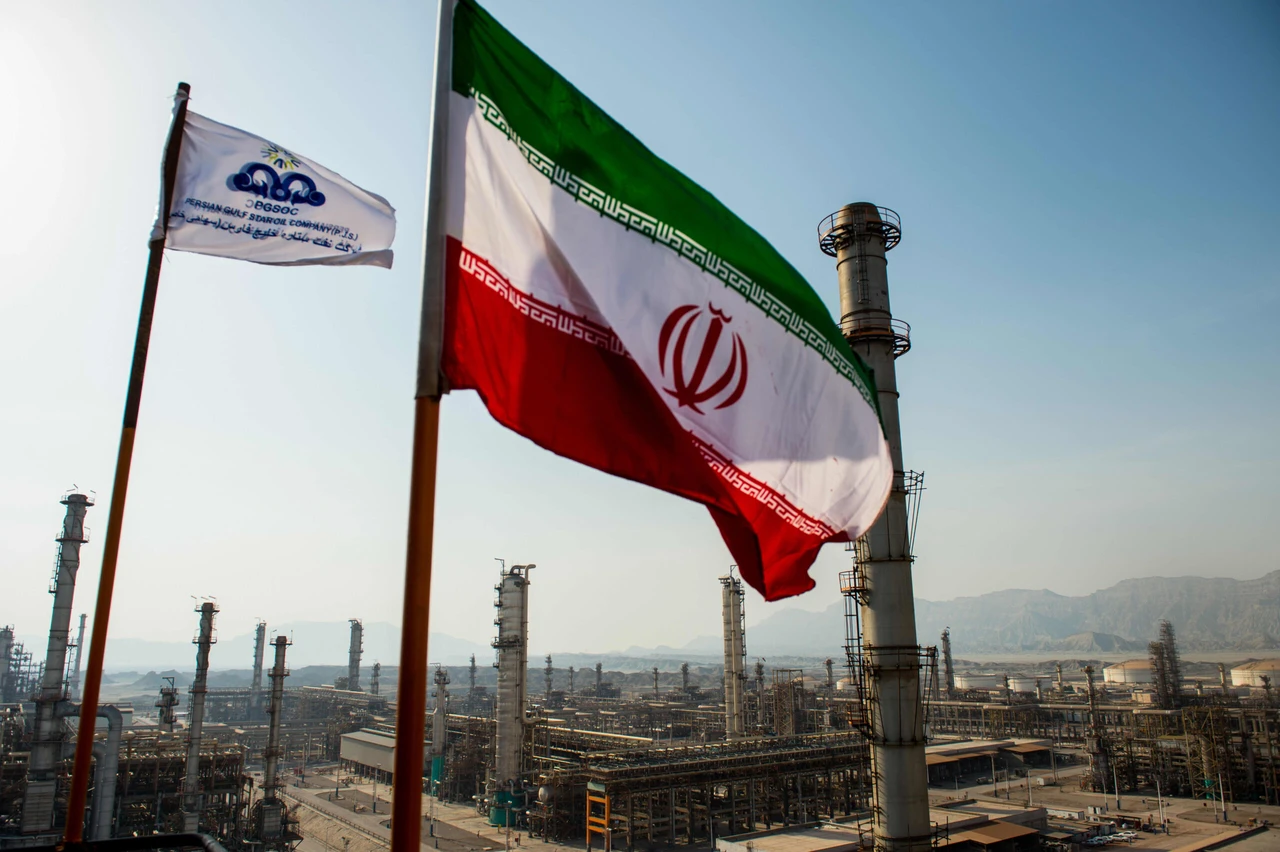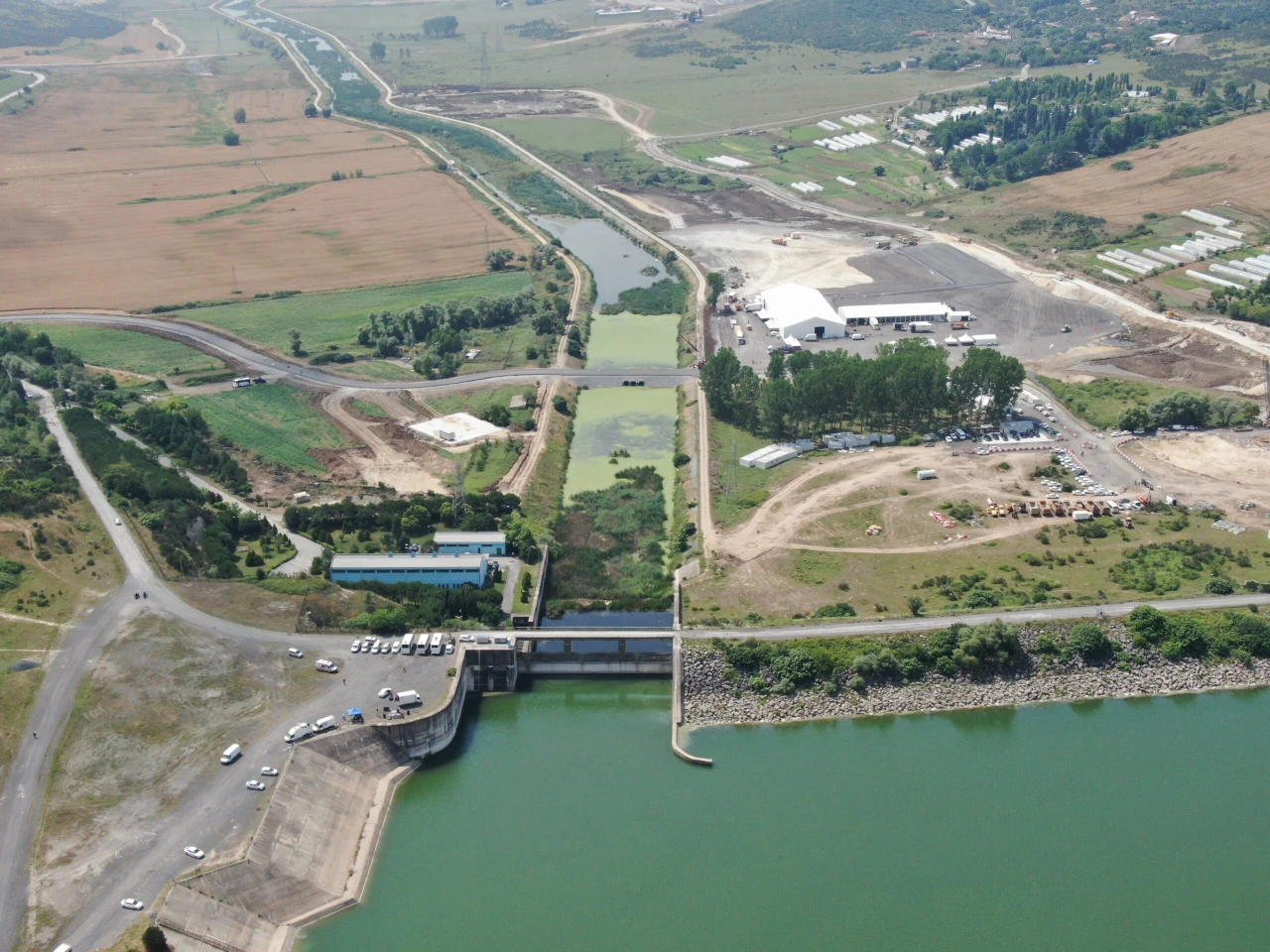Iran’s oil halt pushes Syria toward new regional cooperation
 The Iranian flag above the new Phase 3 facility at the Persian Gulf Star gas condensate refinery in Bandar Abbas, Iran, in 2019. (Ali Mohammadi / Bloomberg / Getty Images)
The Iranian flag above the new Phase 3 facility at the Persian Gulf Star gas condensate refinery in Bandar Abbas, Iran, in 2019. (Ali Mohammadi / Bloomberg / Getty Images)
Following the end of Syria’s 61-year Baath regime, Iran‘s halt of crude oil shipments has worsened the country’s energy crisis, prompting Syria to seek alternative energy sources and explore potential cooperation with regional actors like Saudi Arabia, Qatar and Türkiye.
Though more than a decade of civil war in Syria has significantly undermined information transparency, international sources report that approximately 90% of the country’s oil demand was met by Iran during the rule of the deposed Bashar al-Assad regime.
It is estimated that Iran supplied Syria with 60,000 to 70,000 barrels of crude oil per day during that period.
The remaining 10% is reported to have been sourced from Syria’s own oil fields.
Since the outbreak of the civil war in 2011, Western countries have implemented restrictive policies targeting Syria’s energy sector in response to the regime’s repression of civilians, which has left Syria heavily dependent on Iran for fuel supplies.
After the overthrow of the regime, Iran, which had long supported Syria’s repressive Baathist government, ceased fuel shipments to Damascus.
As a result, operation at Baniyas, the country’s largest oil refinery with daily processing capacity of up to 100,000 barrels of crude, was severely disrupted.
Following Iran’s decision to halt oil shipments, the possibility of Saudi Arabia and Qatar providing energy support to Syria has emerged, with Saudi Arabia’s potential oil supply seen as a strategic move that could reshape regional energy dynamics.
Saudi Arabia, Qatar’s involvement in Syria ‘could alter regional dynamics’
Potential moves by Saudi Arabia and Qatar to supply oil to Syria and strengthen their ties with the energy sector could significantly impact regional dynamics, Gokhan Ereli, coordinator of Gulf Studies at ORSAM, told Anadolu.
The halt of Iran’s long-standing free oil shipments to Syria could create an opportunity for Saudi Arabia ‘to step in and fill the gap, particularly as Iran is reportedly demanding $30-50 billion from Syria’s new administration,’ Ereli said.
‘Saudi Arabia’s involvement in addressing Syria’s energy crisis could be a significant step in reshaping the regional balance of power and part of broader efforts to reduce Syria’s dependence on Iranian energy,’ he said.
As of Dec. 20, sources close to Saudi Arabian media suggest that Saudi Arabia will take responsibility for addressing Syria’s oil access challenges.
‘This move by Saudi Arabia is not only expected to provide energy supplies but could also strengthen diplomatic ties between Syria’s new administration and Gulf countries,’ he added.
Ereli said that Qatar’s investments in power plants and energy infrastructure are in line with Gulf countries’ strategies to enhance energy integration with regional states.
He added that Qatar’s participation in Syria’s energy sector could bolster its efforts to increase its regional influence.
Possible revival of Qatar-Türkiye pipeline
Giorgio Cafiero, the CEO of Gulf State Analytics, said that the Gulf Arab monarchies largely share vested interests in ensuring Syria achieves stability, maintains its territorial integrity and does not become a stronghold for global terrorist organizations.
‘Support in the energy sector could play a crucial role in advancing these interests as Syria navigates its uncertain post-Assad future,’ Cafiero said.
Some GCC members, particularly Saudi Arabia and the UAE, believe that Assad’s fall is a special geopolitical opportunity to take advantage of diminished Iranian influence in the Levant, Cafiero said.
Cafiero further added, ‘Türkiye shares these interests, creating significant opportunities for Ankara and GCC states to collaborate and coordinate regarding the ‘New Syria.’
The Qatar-Türkiye pipeline, initially proposed in the 2000s, is an idea that could possibly be revived depending on the extent to which Syria achieves stability in the upcoming period,’ Cafiero said.
He added, ‘With this proposed natural gas pipeline transiting Syria, there is no doubt that this plan, if it comes to fruition, could help the Syrians regrow and redevelop their war-torn country.’



